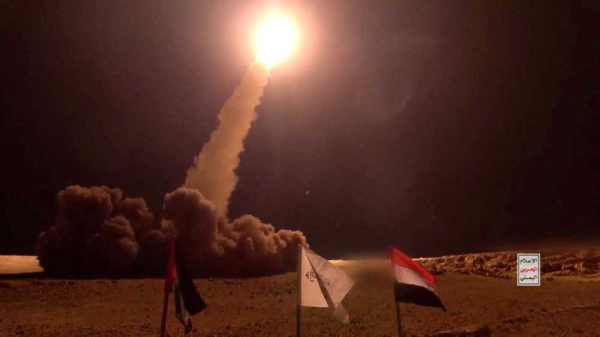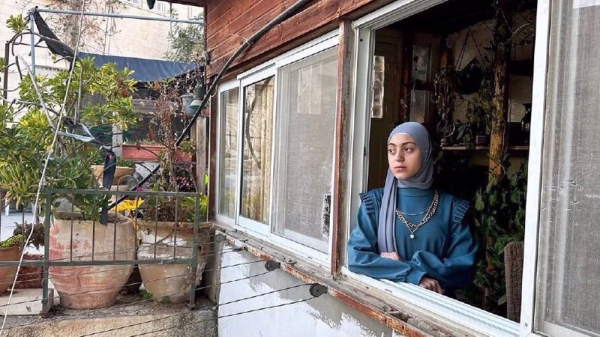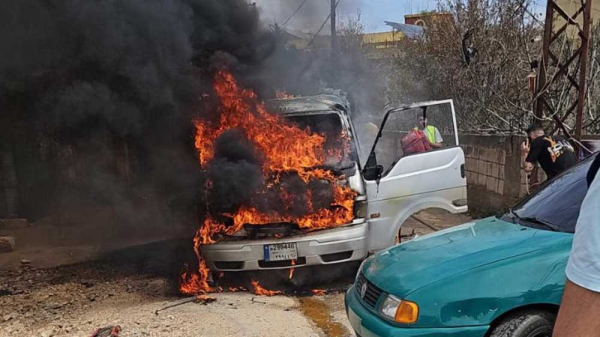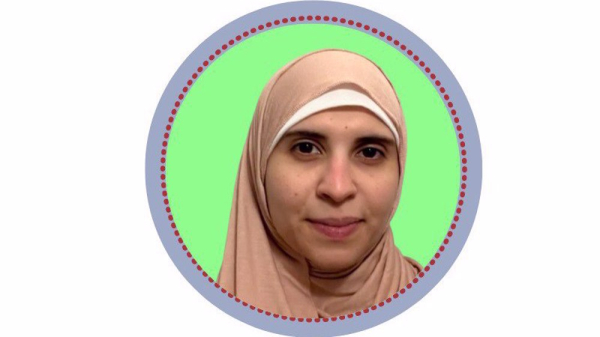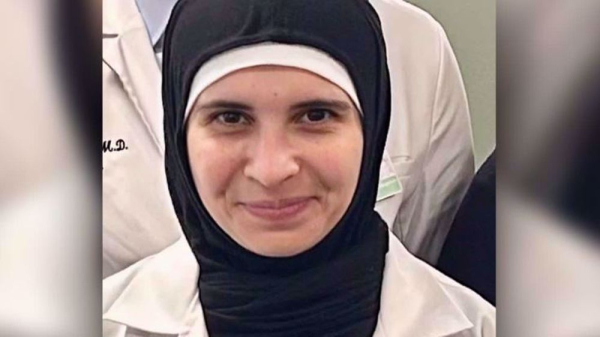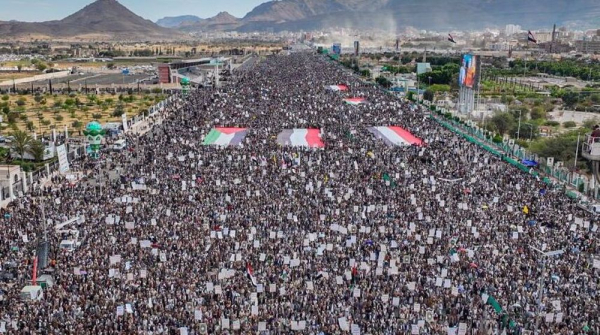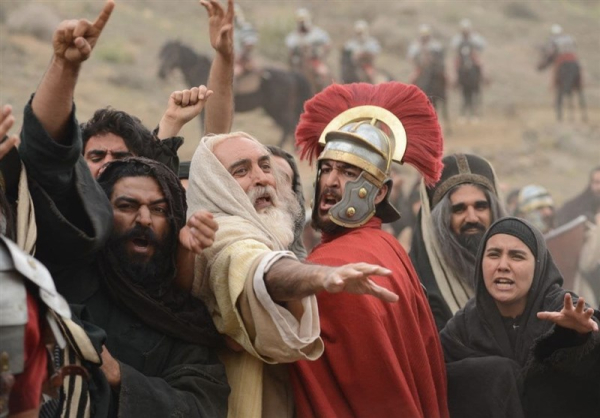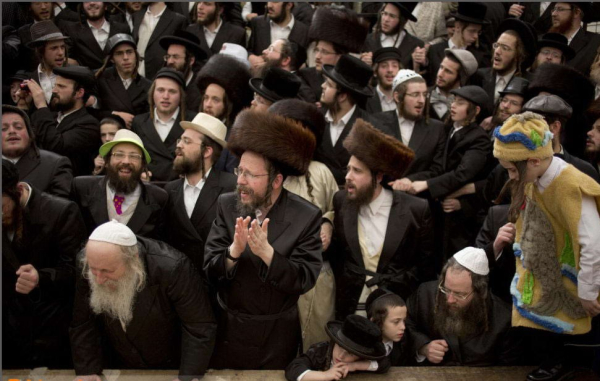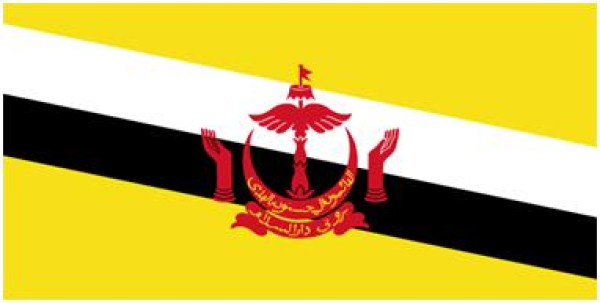zarezadeh
What does “Ramadan” mean?
Some people consider “Ramadan” to be derived from “Ramadh” which means the melting of stones due to the intense heat. Since the obligation to fast during the month of Ramadan coincided with the intense heat, they named this month Ramadan. In one sense, the month of Ramadan is the month of burning sins, and even more so, the burning of the human soul, which cooks the raw human being so that the veil of egoism and selfishness is removed. Others consider Ramadan to be derived from “Ramaidh”, meaning clouds and rain at the end of the peak of summer and the beginning of the autumn season, which removes the heat of summer. For this reason, this month has been called “Ramadan” because it cleanses the bodies of people from sins. Suyuti, Al-Dar Al-Manthur, Vol. 1, p. 183. Others consider “Ramadan” to be derived from “Ramadht Al-Nusl Armadah Ramada”; In the sense that they put the spear between two stones and beat it until it becomes thin. In this interpretation, Ramadan means that a person places himself between obedience and worship of God so that his soul becomes soft and ready for service. Therefore, some say: “Ramadan” is the name that Islam has given to this month and according to another opinion, it has been called this since the time of ignorance. Sayyid Ali Khatan al-Husseini al-Madani al-Shirazi, Riyadh al-Salikin fi Sharh Sahifa al-Sajjadiyah, vol. 6, pp. 10-11, Researched and published by the Islamic Publishing Foundation, Qom, bi-ta.. In the meaning of “Ramadan”, two points are mentioned that are stated in the narrations: 1. In many narrations of the Ahl al-Bayt (a.s.), it is forbidden to say the word “Ramadan” alone and it is recommended to call it “the month of Ramadan”; Because “Ramadan” is one of the names of God. Tarih, Majma’ Al-Bahrayn, Vol. 2, p. 223. It has been narrated from the Commander of the Faithful (peace be upon him): “Do not say Ramadan; rather, say the month of Ramadan and respect it.” Al-Kulaini, Al-Kafi, Vol. 4, p. 69. Imam Baqir (peace be upon him) said: “Do not say “This Ramadan” and “Ramadan has gone” or “Ramadan has come”; because “Ramadan” is a name of God that does not come and does not go. Going and coming are characteristics of the ephemeral being.” Ibid., pp. 69 and 70. So in fact, “Ramadan” is a name of God and the month of Ramadan is the month of God. This is the same expression from the Holy Prophet (peace be upon him and his family) in the Sha’baniyah sermon: “O people, I have come to you the city of Allah”; Sayyid Ibn Tawus, Al-Iqbal, Vol. 1, p. 26. “O people! "Verily, the moon of God has turned towards you."
Yemen warns US: Even one million raids won’t break nation’s resolve; aggressors ultimate losers
Yemen’s Ansarullah popular resistance movement has reasserted the country’s unyielding determination to resist and confront foreign aggression aimed at forcing the Arab country to stop its pro-Palestinian operations.
"Sana'a was not broken by 200,000 raids, and its steadfastness will not be broken by a million raids," Abdulrahman al-Ahnoumi, director of the Yemeni General Corporation for Radio and Television said.
The official was referring to the Arab Peninsula nation’s coming under numerous incessant aerial assaults by a Saudi Arabia-led military coalition, which invaded the country in 2015, as well as ongoing American, British, and Israeli attacks against the Yemeni people.
He made the remarks as the United States claimed to carry out major airstrikes across Yemen on Sunday night, hours after the Ansarullah resistance movement warned that the Yemeni Armed Forces will target the American aircraft carrier, and warships in the region.
“The Yemeni people will not abandon Gaza, even if we are all martyred,” he told Palestine's Shehab news agency, pointing to the Palestinian territory that has endured more than 15 months of a heavily-US-backed Israeli war of genocide.
Under the authority of Ansarullah’s leader Abdul-Malik al-Houthi, Yemen’s Armed Forces began targeting key Israeli sites in October 2023 after the regime launched the brutal war and significantly tightened its restrictions on the entry of essential supplies such as food, medicine, and other crucial resources into the coastal sliver.
The strikes, along with other operations against Israeli ships carrying military and commercial supplies to the occupied Palestinian territories, severely impacted the Israeli economy.
Yemeni forces halted their operations in January following a ceasefire agreement between Tel Aviv and the Gaza-based Palestinian resistance movement Hamas.
However, the Israeli regime has repeatedly breached the agreement, causing deadly and devastating consequences for Gaza’s population. It has also blocked humanitarian aid from entering the territory in an effort to pressure Hamas into handing over remaining Zionist captives in Gaza.
Al-Houthi recently issued a four-day ultimatum to Tel Aviv, demanding the opening of Gaza’s crossings so aid supplies could reach the impoverished territory’s two-million-plus population.
After the regime ignored the deadline, Yemen’s Armed Forces resumed enforcing their ban on Israeli vessels passing through the Red Sea, the Arabian Sea, the Bab el-Mandeb Strait, and the Gulf of Aden.
In response, US President Donald Trump issued an executive order on Saturday, sanctioning deployment of “overwhelming lethal force” towards forcing Sana’a into lifting the ban. According to the Yemeni health ministry, the escalation has so far claimed the lives of scores of non-combatants, targeting purely civilian targets.
Al-Ahnoumi emphasized that the ongoing aggression against Yemen, primarily led by the United States and the United Kingdom, would ultimately fail. He asserted that Yemen’s principled stance against Israeli occupation and aggression would be victorious in the long run, despite the Western atrocities.
“The Yemeni people are adhering to their firm position in supporting Gaza, despite threats and aggression,” he said, asserting that under al-Houthi’s leadership, the country would continue with its retaliatory measures until the siege on Gaza was lifted and the Israeli regime’s assault against the Palestinian territory came to an end.
‘US threats equal psychological warfare’
The official dismissed Trump’s threats as “psychological warfare” designed to intimidate the Yemeni people and weaken their resolve.
“These threats, along with the airstrikes, are nothing but propaganda aimed at dissuading us from our support for Gaza,” he said. “They repeat the phrase: ‘Your time is over…,’ but, thank God, such rhetoric does not frighten us or deter us from our duty of jihad (struggle) for the sake of God and Palestine.”
The Yemeni forces have, meanwhile, been responding firmly to the American escalation.
On Sunday, spokesman Brigadier General Yahya Saree announced that the troops had successfully targeted a US aircraft carrier for the second time in 48 hours, besides thwarting a hostile enemy attack against the Arab country.
Press TV’s website
A 12-year-old Palestinian girl arrested, tortured for drawing Palestinian flag
By Humaira Ahad
Taqwa Ghazawi, a 12-year-old Palestinian girl, was abducted by Israeli occupation forces in Al-Quds (Jerusalem) on March 6 as she left her school.
Ghazawi was charged with drawing and writing Palestinian national slogans.
Her artwork included a watermelon symbol painted in the colors of the Palestinian flag, an emblem of Palestinian identity.
She also depicted an inverted triangle, a symbol used by the al-Qassam Brigades in their operational videos, expressing her support for the Palestinian resistance movement.
As an expression of Palestinian culture and identity, her drawings were perceived as a threat by the occupying regime, which has unleashed horror on Palestinians in the occupied West Bank.
“They put handcuffs on my hands and squeezed them tightly, leaving a visible mark on my hands. I was strip-searched, asked to remove all my clothes, and threatened to be hung from the ceiling. I went without food for four days, drinking only water,” Ghazawi was quoted as saying, narrating the details of her horrific ordeal.
Her father, Omar Ghazzawi, expressed shock at the trivial reason for his daughter’s arrest.
"What happened to my daughter is a crime against childhood and children in the city of Al-Quds (Jerusalem), and it violates all international rights for children worldwide. And this happened because of a child's scribbles,” the father said.
Ghazawi was released under severe conditions, including house arrest, a one-month ban from returning to her family home, a fine of 3,000 shekels ($818), and a third-party guarantee.
The schoolgirl has been confined to her grandmother's house in the Al-Thawri area, south of occupied Jerusalem al-Quds.
The Israeli regime court ruled that she must remain under house arrest, separated from her parents. The regime has even barred her from attending school.
Israeli occupation authorities have intensified their clampdown on Palestinian festivals, performances, and artistic gatherings in the occupied territories, coinciding with the genocide of Palestinians in the besieged Gaza Strip.
Last month, Israeli regime police raided a long-established Palestinian-owned bookstore in occupied East al-Quds, detaining the owners and confiscating books about the Israeli occupation.
Israel has killed nearly 17,900 children in Gaza since October 2023. In addition to committing genocide, the Zionist regime systematically prosecutes Palestinian children in military courts.
Defense for Children International Palestine (DCIP), an NGO advocating for Palestinian children's rights, has documented the illegal detention and prosecution of 500 to 700 Palestinian children each year.
Many of these children are held indefinitely under so-called administrative detention orders without being formally charged.
According to a March 2025 DCIP report, “In 2025, Israeli forces continue to arrest children as young as 10, often during night-time raids, and subject them to physical violence, psychological abuse, and coercive interrogations.”
“Many are held without access to legal representation and family visits,” the report stated.
Testimonies collected by DCIP lawyers reveal the dire conditions inside Israeli prisons.
"The prison conditions have deteriorated significantly, with Israeli prison guards regularly serving rotten food, denying access to toilets and showers, and crowding cells with twice the appropriate number of children."
Since launching its genocidal war on Gaza in October 2023, Israel has imposed severe restrictions on prison access as well. Visits from lawyers representing detainees have become extremely difficult, while family visits have been completely stopped.
The UN Office for the Coordination of Humanitarian Affairs (OCHA) has during this period reported a sharp increase in the illegal detention of Palestinian children.
"Since 2023, there has been a marked increase in the arrest and detention of Palestinian children, many of whom are subjected to violence and denied basic rights," the agency stated in its February report.
Israeli human rights organization B’Tselem has also documented the systemic torture of Palestinian children in Israeli occupation prisons.
"The Israeli military detention system is designed to intimidate and control the Palestinian population, with children being particularly vulnerable," it noted in a December 2024 report.
Despite mounting international condemnation, the Israeli occupation continues its brutal policies against Palestinian children, seeking to silence even the simplest expressions of their identity and resistance.
Press TV’s website
Lebanese national killed in Israeli drone strike in south despite ceasefire
A van goes up in flames following an Israeli drone strike in the town of Yohmor al-Shaqif, Nabatieh province, southern Lebanon, on March 17, 2025. (Photo via social media)
In the latest violation of a fragile ceasefire agreement with Lebanon, an Israeli drone has carried out an attack in the Arab nation’s southern province of Nabatieh, killing a person and wounding three others.
Lebanon’s official National News Agency reported that an Israeli drone fired a guided missile at a motorbike transporting two people on the Hay al-Baydar road in the town of Yohmor al-Shaqif on Monday afternoon, hitting the motorbike directly.
The report added that a van that was passing in the area was hit by shrapnel from the missile before going up in flames.
A blaze also broke out in a supermarket after being damaged by the airstrike.
The Israeli military later said in a statement that it attacked two members of the Hezbollah resistance movement, who were “serving as observation operatives and directing operations” in the Yohmor al-Shaqif area.
This came hours after an Israeli airstrike targeted the outskirts of the southern town of Ainata, killing two people, as an Israeli Apache helicopter bombed three prefabricated houses in the southern border town of Kfarkela.
Israeli minister of military affairs Israel Katz said the military targeted Ainata after “a stray bullet from a Hezbollah operative's funeral” hit the windshield of a vehicle at Avivim moshav in the northernmost part of Upper Galilee region.
Soon after, the Israeli military said it attacked a headquarters of the Radwan force and Hezbollah buildings in south Lebanon, as a helicopter attacked Yaroun's outskirts for a second time.
Israeli drone strikes kill three civilians in southern Lebanon amid ceasefire
Israeli drone strikes kill three civilians in southern Lebanon amid ceasefire
At least three civilians were killed when Israeli military aircraft carried out separate strikes targeting vehicles in southern Lebanon.
Israel had to agree to a ceasefire with Hezbollah following significant losses incurred over nearly 14 months of conflict, failing to achieve its goals in the offensive against Lebanon. The ceasefire took effect on November 27.
Since the commencement of the agreement, the occupying forces have been carrying out near-daily assaults on Lebanon, breaching the ceasefire, which includes airstrikes throughout the Arab nation.
On January 27, Lebanon declared its decision to prolong the ceasefire with Israel until February 18.
Despite the February 18 deadline having passed, Israel persists in its occupation of five critical areas in southern Lebanon, which include Labbouneh, Mount Blat, Owayda Hill, Aaziyyeh, and Hammamis Hill, located near the border.
Lebanon has denounced the ongoing presence of Israeli military personnel, which constitutes a breach of the ceasefire agreement and the stipulated withdrawal timeline. High-ranking officials in Beirut have stated their intention to “employ all measures” necessary to expel the occupying forces from the Arab country.
Press TV’s website
Brown University professor deported after visiting family in Lebanon
A Brown University professor and Rhode Island Hospital physician, legally residing in the United States, was detained by the US Customs and Border Protection officials at Boston’s Logan airport and deported to Lebanon.
Dr. Rasha Alawieh was barred from reentry into the US on Thursday by the CBP officials despite having a visa.
A federal court order that would have stopped the deportation of Dr. Alawieh was issued on Friday, said Dr. Basma Merhi, a family friend and colleague.
The departing airplane was on the tarmac at Boston’s Logan International Airport. The CBP officials disregarded the court order, the airplane took off and carried Dr. Alawieh to Lebanon.
“They did not do anything to stop the plane … So, clearly, they wanted to deport her regardless of if there was a judge’s order or not. She did not do anything wrong,” said Dr. Merhi.
Dr. Alawieh had a valid H-1B visa she had recently received from the US consulate in Beirut. The visa allowed her to be lawfully in the US until the middle of 2027.
An H-1B visa allows employers to hire non-American workers for positions that require specialty knowledge.
In addition to her professorship at Brown University, Dr. Alawieh has been working for Brown Medicine’s Division of Kidney Disease and Hypertension.
Her filing has revealed that the State Department and US Citizenship and Immigration Service had approved her visa, and the reason why she was being held by the CBP has remained unclear.
The incident is the latest amid a nationwide crackdown on immigration by the Trump administration, especially against students and other academia-affiliated individuals.
On Friday, the Department of Homeland Security arrested Leqaa Kordia, a Palestinian student at Columbia University, for allegedly overstaying her F-1 student visa.
Last Saturday, Mahmoud Khalil, a well-known Palestinian campus activist and a green-card holder, was detained by federal immigration authorities and has been facing deportation.
Press TV’s website
Judge orders Trump administration to explain deportation of Lebanese doctor
A federal judge has ordered the administration of US President Donald Trump to explain why a Rhode Island doctor was deported to Lebanon in defiance of a previous order.
Dr. Rasha Alawieh, a Brown University professor and Rhode Island Hospital physician, was detained by the US Customs and Border Protection officials at Boston’s Logan airport on March 13, despite having a valid H-1B visa which enables employers to hire non-American workers for positions that require specialty knowledge.
Federal Judge Leo T. Sorokin, in response to a petition from Alawieh's cousin, ordered that the Lebanese doctor not be deported without giving the court 48 hours’ notice.
However, Alawieh was placed on a flight to Paris, where she was detained on Saturday before flying to Lebanon.
“They did not do anything to stop the plane … So, clearly, they wanted to deport her regardless of if there was a judge’s order or not. She did not do anything wrong,” said Dr. Basma Merhi, a family friend and colleague.
Attorneys representing Alawieh's cousin, Yara Chehab, said in a court filing that the government had received "actual notice" and "willfully disobeyed" the court's order, as she was expected to fly to Lebanon on Sunday.
The Trump administration has not said why Alawieh was detained after visiting her family in Lebanon.
Sorokin on Sunday ordered CBP officials to court Monday morning to respond to the "serious allegations".
“These allegations are supported by a detailed and specific timeline in an underoath affidavit filed by an attorney,” Sorokin wrote in court documents. “The government shall respond to these serious allegations with a legal and factual response setting forth its version of events.”
“In addition, the government shall preserve all of the documents bearing on Dr. Alawieh’s arrival and removal since the issuance of the visa described in the petition including emails and text messages.”
The Council on American-Islamic Relations (CAIR) urged the Trump administration to "immediately readmit" Alawieh.
"As a US resident for six years and a doctor working for the Division of Kidney Disease & Hypertension at Brown Medicine, Dr. Alawieh played a critical role in treating countless patients who needed treatment by a specialist," CAIR's statement read.
Her deportation came just one week after federal authorities arrested Mahmoud Khalil, a Columbia University graduate and a Palestinian activist who helped organize campus protests against Israel’s genocidal war in Gaza across the US in 2024.
Khalil has been facing deportation, despite being a legal permanent resident in the US.
Earlier, the Department of Homeland Security arrested Leqaa Kordia, a Palestinian student who had taken part in protests at Columbia University, for allegedly overstaying her F-1 student visa.
Press TV’s website
Yemenis to Trump: We’ll confront escalation with ‘military escalation, general mobilization’
Yemenis have staged massive nationwide rallies, vowing to confront the US aggression through military escalation, general mobilization, and economic embargoes against adversaries.
The demonstrations were held in the capital Sana’a and cities in other provinces on Monday.
The “million-strong” march of defiance came after the leader of the Ansarullah resistance movement Abdul Malik al-Houthi called for action in a televised speech broadcast live on Sunday.
“We announce our comprehensive move in response to the recent aggression and US escalation with military escalation, general mobilization, and economic boycott of the enemies,” said a statement read out during the nationwide event.
“We fear no one and bow to no one except Allah. We will confront escalation with escalation.”
The participants who held placards and shouted anti-US slogans vowed to confront the US-Israeli expansionist agenda across West Asia. They pledged to stand up against the US and its allies.
“We are prepared to confront all the tyrants of the earth without hesitation or fear and to offer all sacrifices in this cause.”
The statement stressed that, “We affirm our firm stance of standing with our brothers in Gaza in facing all the dangers targeting them.”
Mohammed Ali al-Houthi, a member of the Supreme Political Council for Ansarallah, also vowed to fight bullying by US President Donald Trump.
“You are mistaken, Trump. We are ready to face all the tyrants of the earth, to make sacrifices, and remain steadfast in our positions.”
“We are always with the Palestinians and will not abandon them. We will continue the siege on the enemy and confront them until the siege on Gaza is lifted.”
Under the authority of Ansarullah’s leader, Yemen’s Armed Forces began targeting key Israeli sites in October 2023, after the regime launched the campaign of genocide. The Yemeni display of support for the Palestinians has been on ever since.
On March 15, the US CENTCOM conducted airstrikes on Yemen, killing at least 31 people.
Trump had issued an executive order, sanctioning deployment of “overwhelming lethal force” towards forcing Sana’a into lifting the ban on Israel-bound shipping in the region.
Yemen’s Ansarullah resistance movement warned the armed forces of the country will target the US aircraft carrier and other US warships in the region.
The Yemeni demonstrators reasserted determination to resist and confront foreign aggression.
“We take pride in and are honored by the decision of our leader, who announced a 4-day deadline to lift the siege on Gaza, after which a siege will be imposed on the ships of the Zionist enemy entity,” the demonstrators said in their statement, referring to Houthi’s 4-day ultimatum to Tel Aviv.
Houthi firmly demanded the opening of Gaza’s crossings so that humanitarian aid supplies could reach the two-million-plus population of Gaza.
After the regime ignored the deadline, Yemen’s Armed Forces resumed enforcing their ban on Israeli vessels passing through the Red Sea, the Arabian Sea, the Bab el-Mandeb Strait, and the Gulf of Aden.
Press TV’s website
Salman Farsi is the example of the verse "Those who believe in the Unseen"
العسکری (علیه السلام)- إِنَّ سَلْمَانَ الْفَارِسِیَّ (رحمة الله علیه) مَرَّ بِقَوْمٍ مِنَ الْیَهُودِ فَسَأَلُوهُ أَنْ یَجْلِسَ إِلَیْهِمْ وَ یُحَدِّثَهُمْ بِمَا سَمِعَ مِنْ مُحَمَّدٍ (صلی الله علیه و آله) فِی یَوْمِهِ هَذَا فَجَلَسَ إِلَیْهِمْ لِحِرْصِهِ عَلَی إِسْلَامِهِمْ ... فَجَعَلُوا یَهْزَءُونَ بِهِ وَ یَقُولُونَ: یَا سَلْمَانُ! لَقَدْ ادَّعَیْتَ مَرْتَبَهًًْ عَظِیمَهًًْ شَرِیفَهًًْ نَحْتَاجُ أَنْ نَمْتَحِنَ صِدْقَکَ عَنْ کَذِبِکَ فِیهَا وَ هَا نَحْنُ أَوَّلًا قَائِمُونَ إِلَیْکَ بِسِیَاطِنَا فَضَارِبُوکَ بِهَا فَاسْأَلْ رَبَّکَ أَنْ یَکُفَّ أَیْدِیَنَا عَنْکَ. فَجَعَلَ سَلْمَانُ یَقُولُ: اللَّهُمَّ اجْعَلْنِی عَلَی الْبَلَاءِ صَابِراً وَ جَعَلُوا یَضْرِبُونَهُ بِسِیَاطِهِمْ حَتَّی أَعْیَوْا وَ مَلُّواْ ... فَقَالُوا: لَا نَزَالُ نَضْرِبُکَ بِسِیَاطِنَا حَتَّی تَزْهَقَ رُوحُکَ أَوْ تَکْفُرَ بِمُحَمَّدٍ (صلی الله علیه و آله). فَقَالَ: مَا کُنْتُ لِأَفْعَلَ ذَلِکَ فَإِنَّ اللَّهَ قَدْ أَنْزَلَ عَلَی مُحَمَّدٍ (صلی الله علیه و آله) الَّذِینَ یُؤْمِنُونَ بِالْغَیْبِ وَ إِنَّ احْتِمَالِی لِمَکَارِهِکُمْ لِأَدْخُلَ فِی جُمْلَهًِْ مَنْ مَدَحَهُ اللَّهُ تَعَالَی بِذَلِکَ سَهْلٌ عَلَیَّ یَسِیرٌ فَجَعَلُوا یَضْرِبُونَهُ بِسِیَاطِهِمْ حَتَّی مَلُّوا ثُمَّ قَعَدُوا ... فَقَالَ رَسُولُ اللَّهِ (صلی الله علیه و آله) وَ هُوَ فِی مَجْلِسِهِ: مَعَاشِرَ الْمُسْلِمِینَ! إِنَّ اللَّهَ قَدْ نَصَرَ أَخَاکُمْ سَلْمَانَ سَاعَتَکُمْ هَذِهِ عَلَی عِشْرِینَ مِنْ مَرَدَهًِْ الْیَهُودِ وَ الْمُنَافِقِینَ. فَقَامَ رَسُولُ اللَّهِ (صلی الله علیه و آله) وَ أَصْحَابُهُ إِلَی تِلْکَ الدَّارِ ... ثُمَّ أَقْبَلَ رَسُولُ اللَّهِ (صلی الله علیه و آله) عَلَی سَلْمَانَ (رحمة الله علیه) فَقَالَ: یَا بَا عَبْدِ اللَّهِ! أَنْتَ مِنْ خَوَاصِّ إِخْوَانِنَا الْمُؤْمِنِینَ وَ مِنْ أَحْبَابِ قُلُوبِ مَلَائِکَهًِْ اللَّهِ الْمُقَرَّبِینَ إِنَّکَ فِی مَلَکُوتِ السَّمَاوَاتِ وَ الْحُجُبِ وَ الْکُرْسِیِّ وَ الْعَرْشِ وَ مَا دُونَ ذَلِکَ إِلَی الثَّرَی أَشْهَرُ فِی فَضْلِکَ عِنْدَهُمْ مِنَ الشَّمْسِ الطَّالِعَهًِْ فِی یَوْمٍ لَا غَیْمَ فِیهِ وَ لَا قَتَرَ وَ لَا غُبَارَ فِی الْجَوِّ أَنْتَ مِنْ أَفَاضِلِ الْمَمْدُوحِینَ بِقَوْلِهِ الَّذِینَ یُؤْمِنُونَ بِالْغَیْبِ.
Imam Askari (peace be upon him) Salman Farsi (may God have mercy on him) reached a Jewish tribe. They asked him to go and sit among them and talk about what he had heard from Muhammad today. Salman (may Allah have mercy on him), who was very eager to convert him to Islam, accepted... They began to mock him and said: "O Salman (may Allah have mercy on him)! You have a very noble and great claim to a position, and we must test the truth of your words. [In this way] we will first come to you with our whips and beat you with them. Then ask your Lord to stop us from doing this." Salman (may Allah have mercy on him) said: "O Lord! Make me patient with this calamity!" They began to beat him until they were exhausted and helpless... They said: "We will beat you until your soul leaves your body or you become an infidel against Muhammad." Salman (may Allah have mercy on him) said: "I will never do that. Indeed, Allah The verse "Those who believe in the Unseen" was revealed to Muhammad (peace be upon him) and I think that I will easily be included in this verse because of your evil deed." So they started to beat them again until they got tired and sat down... The Messenger of God (peace be upon him) said in a gathering where a group of Muslims were present: "Indeed, God has just given victory to your brother Salman (may God have mercy on him) over twenty of the rebellious Jews and hypocrites." Then the Prophet (and his companions) set out for that house... The Messenger of God (turned to Salman (may God have mercy on him) and said: "O Abu Abdullah! You are one of our special believing brothers and one of the beloved of the hearts of the angels who are close to God; the fame of your virtue in the kingdom of the heavens, the world of the unseen, the throne, the throne and everything below it to the earth is more famous than the blazing sun on a day when there is no cloud and its sky is free of dust; according to the word of God: "Those who believe in the unseen, and you are among the most praised." Tafsir Ahlul Bayt (peace be upon them) Vol. 1, p. 116 Bihar al-Anwar, Vol. 22, p. 369/Imam al-Askari, p. 68
The Jewish Effort to Extract Knowledge from the Quran
الصّادق (علیه السلام)- أَنِّی سَأُنْزِلُهُ عَلَیْکَ یَا مُحَمَّدُ (صلی الله علیه و آله) لا رَیْبَ فِیهِ فَقَدْ ظَهَرَ کَمَا أَخْبَرَهُمْ بِهِ أَنْبِیَاؤُهُمْ أَنَّ مُحَمَّداً (صلی الله علیه و آله) یُنْزَلُ عَلَیْهِ کِتَابٌ مُبَارَکٌ لَا یَمْحُوهُ الْبَاطِلُ یَقْرَؤُهُ هُوَ وَ أُمَّتُهُ عَلَی سَائِرِ أَحْوَالِهِمْ ثُمَّ الْیَهُودُ یُحَرِّفُونَهُ عَنْ جِهَتِهِ وَ یَتَأَوَّلُونَهُ عَلَی غَیْرِ وَجْهِهِ وَ یَتَعَاطَوْنَ التَّوَصُّلَ إِلَی عِلْمِ مَا قَدْ طَوَاهُ اللَّهُ عَنْهُمْ مِنْ حَالِ أَجَلِ (آجَالِ) هَذِهِ الْأُمَّهًِْ وَ کَمْ مُدَّهًُْ مُلْکِه.
Imam Sadiq (peace be upon him) said that when God sent Prophet Muhammad (peace be upon him) to Mecca, and then sent him to Medina, and thus strengthened him, He revealed the Quran to him, and made the beginning of its greatest Surah “Al-Mal” (in the verse “Al-Mal, that is the Book”), which means that this is the Book that I promised to My prophets who came before you, and I promised them that I would soon reveal this Book to you, O Muhammad (peace be upon him). There is no doubt about it; just as their prophets (the Israelites) had informed them before, this matter became clear that a blessed Book would be revealed to Muhammad (peace be upon him) that falsehood would not be able to destroy. He and his nation read it in all circumstances. [However] the Jews read the Quran from [the meaning and] direction He himself has distorted and misinterpreted it, and he tries very hard to attain knowledge that God has hidden from them; [such as] knowledge of the future state of the Ummah [of Muhammad] and also knowledge of the duration of Muhammad's reign and authority.
Tafsir Ahlul Bayt (peace be upon him) Vol. 1, p. 112 Bihar al-Anwar, Vol. 10, p. 14/Imam al-Askari, p. 62/Ma'ani al-Akhbar, p. 24/Bihar al-Anwar, Vol. 17, p. 217
Brunei
Country Name: Brunei Darussalam
Government Type: Monarchy
Capital: Bandar Seri Begawan
Official Language and Script: Malay
Population: Over 500,000
Currency: Brunei Dollar (KHR)
Area: 5,765 square kilometers
It is a landlocked country in East Malaysia (Sabah and Sarawak) on the northwest coast of Borneo, between Brunei Bay and Baram Point, bordered to the north by the South China Sea and to the west and east by the state of Sarawak. Brunei is best known for its Sultan of Brunei and its legendary wealth. The country is located on the northwest coast of Borneo and has a warm and humid tropical climate. Brunei consists of two landlocked coastal territories. The (larger) western part is hilly; the eastern part is more mountainous and forested.
Brunei is divided into four provinces, each containing 38 districts.
The four provinces are: Belait, Tutong, Brunei-Muara and Temburong
Its main river is the Brunei, and the highest point in the country is Bukit Pagon (on the Malaysian border) at 1,850 m. Annual rainfall ranges from 250 cm on the coast to 500 cm in the mountains.
History of Brunei
Brunei was formerly a British protectorate, along with other parts of Malaysia. Brunei is the only part of this group that chose to remain a British protectorate in 1963 and not join Malaysia. The country gained independence in 1984 and oil was discovered in the country in 1929. The Sultan of Brunei is said to be the richest man in the world. Due to its abundant oil and gas resources and its population of less than one million, it has one of the highest living standards in the world.
Islam in Brunei
Ministry of Religious Affairs:
The Ministry of Religious Affairs was established based on the needs of Brunei to regulate religious affairs that are respected by the Muslim public. The duty of this ministry is to supervise the implementation of religious affairs and religious education at all levels of society. According to the programs of this institution, Islamic teachings are included for all levels of schools, and religious educational programs through radio and television are also among the items of public Islamic education that are pursued with special seriousness and diligence. The Muslims of this country are Shafi'i.
Implementation of Islamic Sharia law in Brunei:
Since April 1, 2014, Islamic Sharia law has been officially implemented throughout Brunei. Accordingly, Brunei is the first country in the Southeast Asian region to officially implement Islamic Sharia law. Although the implementation of Islamic laws will mainly target Muslims in this country, in some cases it will also include non-Muslims, which has caused some internal and external criticism and concerns among non-Muslim citizens of Brunei. According to Islamic Sharia law, severe punishments are prescribed for criminals, such as flogging for drinking alcohol, amputation of the hand for theft, and stoning for illicit sex.
Although Sharia law has existed in Brunei for a long time, Sharia courts have previously only dealt with family disputes such as marriage, divorce and inheritance.
At the opening ceremony of the 10th session of the Brunei Legislative Council, Sultan Hassanal Bolkiah, referring to criticism, called on the people to unite against the Sharia penal code. He added, "We should not worry about what people outside the country say about us. Because they are not familiar with how Brunei is run." He added: "Implementing the Sharia penal code is a responsibility that has been entrusted to us and the people must support it." Addressing foreign critics, he said: "Please respect us as we respect you."
Ramadan in Brunei
The holy month of Ramadan is celebrated with special respect in Brunei. During Ramadan, restaurants and eateries are closed from dawn to dusk and at iftar time and cannot accept any customers, but non-Muslims can buy ready-made food from restaurants or eateries and take it with them in a package.
Hajj in Brunei
The history of the Hajj in Brunei is tied to other Malay countries such as Malaysia and Indonesia. In the language and culture of the Saudi people, pilgrims and people from these countries, from Thailand to Malacca and New Guinea, were known as Javanese or Javanese. Pilgrims from the Malay Archipelago were first transported to Saudi Arabia by Arab ships and then by English and Dutch steamships. These pilgrims spent some time in quarantine on the islands before entering Mecca.
All matters related to Hajj were the responsibility of the British Government Office before 1954. In that year, with the establishment of the Government Office of Religious Customs and Charity, the Hajj matter was transferred to it. Then, in 1960, the Hajj affairs were taken over by the Religious Affairs Office. In 1986, with the promotion of the Religious Affairs Office to the Ministry of Hajj Affairs, this matter was transferred to an independent office within this ministry.
The Hajj Affairs Office consists of four departments: management and financial affairs, international relations, admissions and publications. Planning and registering Hajj volunteers, holding intensive Hajj classes for volunteers, reviewing the Sharia rulings and rituals of Hajj on an ongoing basis, health affairs and medical examinations of pilgrims, implementing and supervising the provision of services during Hajj and Umrah ceremonies, granting licenses to private companies to handle Hajj affairs and supervising them, and managing Hajj flights are among the duties of the Hajj Office.
All travel, accommodation and hospitality matters for pilgrims in this country are the responsibility of caravans and tourist companies. Hajj education is provided by providing educational booklets and books. For pilgrims who are performing Hajj Tamattu for the first time, practical classes are also held by the Hajj Office. This office is responsible for preparing and presenting the annual Hajj report.

